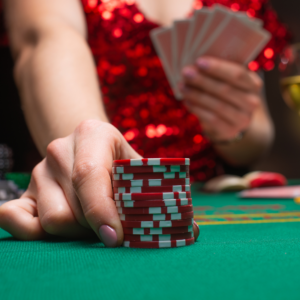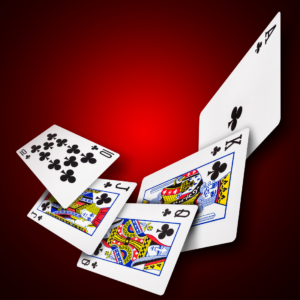Casino Myths and Superstitions from Around the World: A Guide to Gambling’s Lucky Charms
The world of gambling is not just about odds and strategies; it’s steeped in a rich tapestry of myths and superstitions that players from different cultures adhere to in hopes of tilting the odds in their favor.
From lucky charms to specific behaviors, these gambling superstitions are as diverse as they are fascinating.
Let’s explore some of the most intriguing casino myths and lucky gambling rituals from around the globe.
The Power of Lucky Numbers
Numbers hold significant power in gambling superstitions. In many Western cultures, seven is considered the luckiest number, often associated with positive outcomes and big wins.
Conversely, the number thirteen is widely regarded as unlucky, with some casinos even skipping the thirteenth floor or omitting table number thirteen to avoid bad fortune.
In Chinese culture, the number eight is believed to bring luck due to its phonetic resemblance to the word for prosperity. Conversely, the number four is avoided, as it sounds like the word for death in Chinese.
Color Me Lucky
Colors also play a crucial role in gambling superstitions. Red, considered lucky in Chinese culture, is often worn by gamblers or seen in the decor of casinos, especially in Macau and Hong Kong. The belief is that red brings good fortune and wealth, prompting players to don red clothing or bet on red in games of chance.
Rituals and Lucky Charms
Many gamblers believe in performing specific rituals or carrying lucky charms to enhance their luck. Common practices include blowing on dice before rolling, crossing fingers, or knocking on wood. Lucky charms can range from simple objects like a four-leaf clover or rabbit’s foot to more personal items believed to bring good luck to the holder.
Entering Through the Right Door
In some cultures, how you enter a casino can influence your luck. The MGM Grand in Las Vegas once had a main entrance through a lion’s mouth, a design based on the city’s ties to entertainment and grandiosity. However, many Asian gamblers avoided this entrance, believing that walking into the mouth of a lion was bad luck. The casino eventually redesigned the entrance to accommodate these superstitions.
Avoiding the Main Entrance
Similarly, some players believe in avoiding the main casino entrance altogether. This superstition stems from the idea that luck can be affected by the way you enter a gambling space, with some believing that entering through the main entrance can lead to bad luck due to the possible negative energy from gamblers who have lost.
The Curse of $50 Bills
In the United States, particularly in Las Vegas, there’s a peculiar aversion to $50 bills among gamblers. This superstition is said to have roots in the mob era when people carrying $50 bills were often involved in illegal activities. To this day, many gamblers refuse to accept payouts in $50 bills to avoid bad luck.
Counting Money at the Table
A common superstition across many cultures is that counting money while still playing at a table is bad luck. This belief possibly stems from the idea that pride comes before a fall, and by counting your money, you’re assuming you’ve already won, potentially angering the gambling gods.
Lucky and Unlucky Seats
The belief in lucky or unlucky seats at a gambling table is widespread. Some players have specific seats they believe are more fortunate based on past wins. In contrast, others might avoid seats where they or others have experienced significant losses, believing the bad luck lingers.
FAQ’s
Do gambling superstitions really affect the outcome of games?
While superstitions don’t have a scientific basis to influence the outcome of games, they can impact a player’s confidence and mindset, which in turn can affect their decision-making and enjoyment of the game.
Are there any universal gambling superstitions?
While specific beliefs can vary greatly across different cultures, the practice of having lucky charms or rituals is a common theme worldwide.
Can a superstition become a self-fulfilling prophecy?
Yes, if a gambler believes strongly in a superstition, their actions influenced by that belief can lead to outcomes that reinforce their superstitions, creating a cycle of belief and behavior.
Should new gamblers adopt these superstitions?
While it’s not necessary to adopt these superstitions, understanding them can enhance the cultural experience of gambling, especially when playing in casinos around the world.
Conclusion
Casino myths and gambling superstitions are fascinating aspects of the gambling world that connect players across different cultures and eras. They reflect the human desire for luck and the belief in forces beyond our control. Whether you see them as a bit of fun or integral parts of your gambling routine, these superstitions are a testament to the rich and varied tapestry of human belief and the universal quest for fortune. Remember, the most important thing is to gamble responsibly and enjoy the journey, superstitions and all.




